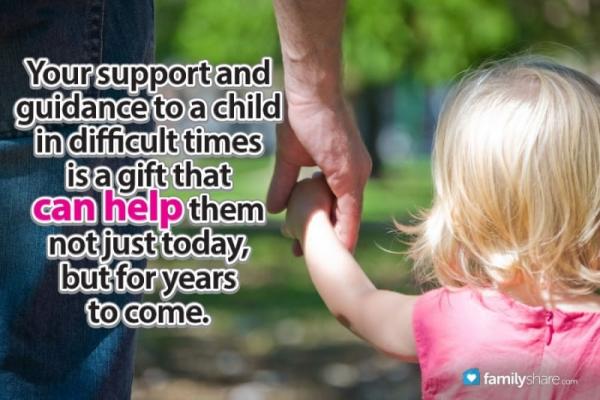
Children growing up in our society face a special opportunity - and a special challenge. In many ways, they are being exposed to much of the same information as adults. They watch the same newscasts, browse the same websites, and view the same movies or TV shows. They are confronted by the same information that overwhelms many adults - and often need help to cope with that pressure.
Never is this more true than in dealing with news stories about horrific events affecting other children. When such events occur, they often generate wave after wave of depressing news coverage, describing the violence, the carnage, the contributing causes for the disaster, and other distressing information. Often statistics are provided, detailing how often such terrible things happen, expanding further the impact of the current featured disaster.
Many adults describe feeling devastated and frightened in the face of such information. If that is true for adults, how much more true it can be for tender young children, who sense their own vulnerability in an often frightening world.
Of course, for some unfortunate children, the disaster strikes much closer to home than merely in an upsetting news story. Some children face disaster and terror within their own lives, or within their own homes. Abuse, divorce, death, crime, health challenges, or other troubling circumstances can shadow the life of a child in their most tender years, as they are forming their core perspectives about life.
When you are seeking to help an overwhelmed child - whether as a parent, a neighbor, a teacher, a counselor, or in whatever capacity - you can have great power to help them make sense of difficult experiences in ways that can mobilize their strength, rather than just awaken their fear. Here are some suggestions for how to help children through such troubling circumstances, whether in their own personal lives, or through exposure to troubling stories in the media:
1. Help them see it in perspective
Focusing exclusively on negative events when they occur is a natural and common reaction in human beings (and in the media.) But it is not necessarily a healthy one. It expands and generalizes the impact of the negative experience, creating the feeling that danger lurks around every corner, that no place or circumstance is safe.
To fight this tendency, help children remember the positives - the people they can trust, the positive experiences they have enjoyed, and can still enjoy.
For example, one young boy, dealing with the impact of having been sexually abused, sought counseling, fearing that such a negative experience had broken him, dooming him to a life of pain and of not feeling good enough. In counseling, he was encouraged to envision a large pizza, filled with a delectable mountain of cheese and pepperoni. One of those pepperonis was cooked too close to the edge of the oven, and was burnt to a crisp. The boy was asked if he would throw the entire pizza away. "Of course not,"� he replied. "I'd throw away the burnt pepperoni - and then enjoy the rest of the pizza."�
This simple analogy helped that boy understand that though destructive elements may appear, they are only a tiny part of an entire life experience. When the good things are remembered and enjoyed, the bad things make only the slightest impact. Resisting the tendency to over-focus on the bad, and remembering to see the whole picture, including the positives, makes the negative easier to endure - and finally overcome.
2. Let them know they are not alone
Let them know that you and others are there for them, to support them and help keep them safe. Let them know also that whatever they are facing, they are not alone in facing it. Tell them about other people who have passed successfully through similar challenges, and who came out better and stronger for it.
3. Provide a safe environment for them to talk about their feelings
When devastating events occur, it helps to be able to talk through the conflicting and overwhelming feelings that may arise. Provide a safe place, where it is OK to say anything, where children will not be judged if they express feelings of anger, despair, terror, or even guilt. Provide support through the expression of those difficult feelings. Provide a shoulder to cry on, a kind word of validation, a warm acceptance of the normalcy of feelings expressed - even if they're not pretty.
There is almost nothing more powerful that you can do to help limit the destructive impact of a negative experience, so it doesn't haunt and afflict that child throughout life, than to help a child to talk about it shortly after it occurs. Then gently help them to move on to happier topics and happier experiences.
4. Let them know that they are loved
Love is the balm that can most powerfully heal even the deepest of sorrows. Extend affection, support, understanding, and patience. Children may not be on their best behavior when they are struggling to make sense of difficult circumstances. They may become unfocused, whiny, demanding, distracted, angry, or detached. Such reactions can be unpleasant. But loving a child consistently, even through such behaviors, sends a powerful, affirming message that can more quickly help them to deal with whatever is bothering them, and move on from there.
Working through hard things is a taxing process - for an adult, but even more so for a child. Your support and guidance to a child in difficult times is a gift that can help them not just today, but for years to come - impacting not only their own life, but the lives of all they will reach out to and affect themselves, when it becomes their turn to extend loving support to others who struggle.

